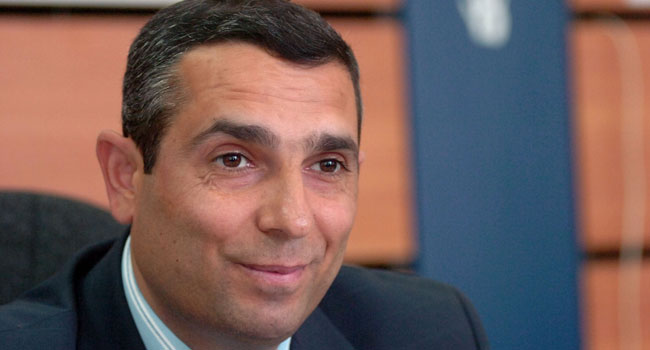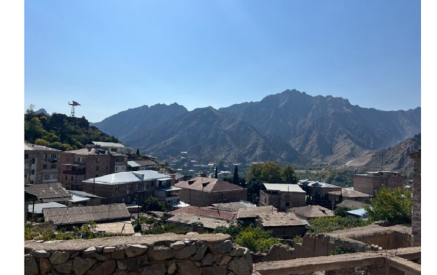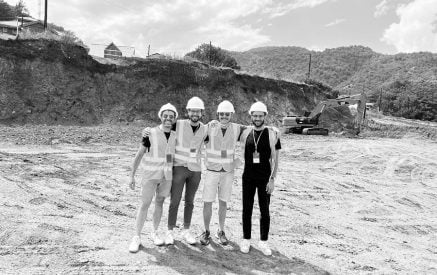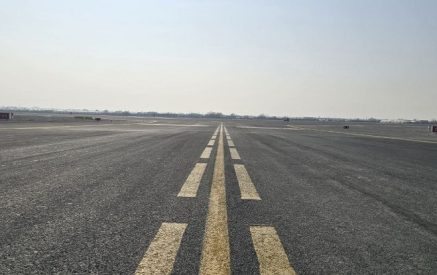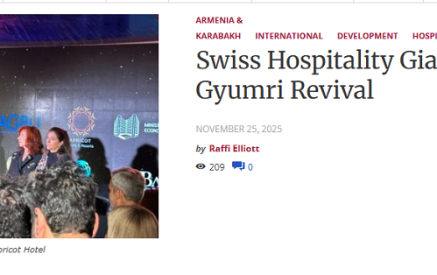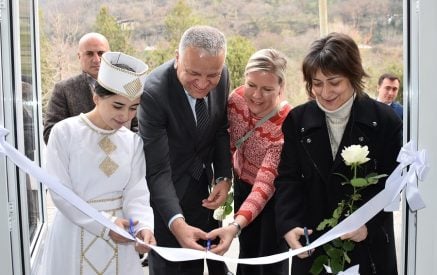Interview of Minister of Foreign Affairs of the Republic of Artsakh Masis Mayilian to News.am Agency
Question: Official Yerevan states the need to return Artsakh to the negotiation table. What is the possibility of it? Can you, please, present the position of Artsakh on this issue?
Answer: The position of Armenia’s Prime Minister Nikol Pashinyan on the need to return Artsakh to the negotiation process completely coincides with the approaches of the authorities of Artsakh. The need to restore the full-fledged trilateral negotiation format has repeatedly been mentioned by the President of Artsakh, Bako Sahakyan, and other officials both in public statements and at the negotiations with the OSCE Minsk Group Co-Chairmen for the past two decades. The former authorities of Armenia also raised this issue. The possibility of restoring the trilateral negotiation format was also admitted by the international mediators – the OSCE Minsk Group Co-Chairmen.
A few years ago, speaking as an independent expert, in an interview to the mass media I suggested that the authorities of Armenia and Artsakh clearly distribute the roles and powers of the two Armenian states in the process of peaceful settlement of the conflict with Azerbaijan. Ultimately, the Republic of Armenia could refuse to discuss with Azerbaijan and the mediators the key issues of the settlement, which, as agreed, would be attributed to the exclusive competence of the authorities of the Republic of Artsakh. Then the mediators and the third party would have no choice but invite the official delegation of Artsakh to the negotiation table.
The statement made by the new Prime Minister of Armenia in Stepanakert and Armenia’s National Assembly on his readiness to negotiate with the leadership of Azerbaijan exclusively on behalf of the Republic of Armenia actualizes the need to search for a mechanism for the restoration of the full-fledged trilateral negotiation format.
Question: Why does the Azerbaijani party oppose the restoration of the full-fledged negotiation format, and what will Artsakh’s participation in the negotiations bring?
Answer: The parliamentary delegation of the Nagorno Karabakh Republic (NKR) had participated in the negotiations under the auspices of the CSCE Minsk Conference chairmanship since the summer of 1992. In September 1993, the leadership of Nagorno Karabakh was recognized by the CSCE states as one of the main parties to the conflict. In the future, within the frameworks of the CSCE-OSCE, the UN and the CIS Inter-Parliamentary Assembly, various documents evidencing Nagorno Karabakh as a party to the conflict were adopted. In particular, in March 1995, the OSCE Chairperson-in-Office in his Prague Resume confirmed the “previous OSCE decisions on the status of the parties, i.e. the participation of the two State parties to the conflict and of the other conflicting party (Nagorno-Karabakh) in the whole negotiation process, including in the Minsk Conference “. It should be noted that until December 1994, along with the Minsk Process, trilateral negotiations were held with the mediation of the Ministry of Foreign Affairs and the Ministry of Defense of Russia. Besides the trilateral negotiations, in 1993, series of bilateral negotiations between Artsakh and Azerbaijan took place, including the high –level meeting in Moscow in September 1993. Some of the negotiations resulted in signing documents between Stepanakert and Baku.
In addition to the final document of the OSCE Budapest Summit of 1994 and the trilateral and termless ceasefire agreement of May 12, 1994, there are many examples of recognizing the NKR as a conflicting party by official Baku and the international community. The status of Artsakh in the negotiation process on the settlement of the Azerbaijan-Karabakh conflict is legitimate and indisputable.
The trilateral negotiations, which were held until April 1997, proved to be the most optimal format for achieving concrete results in the negotiations. Each of the parties negotiated on the issues within its competence and assumed the responsibility for their implementation. It was in this format that the most tangible results of the negotiations were reached – the 1994 ceasefire agreement, as well as the arrangements on strengthening the ceasefire in 1995.
To overcome the current situation and to ensure progress in the negotiation process, we consider it necessary to return to the trilateral format of the settlement, which has already proved its effectiveness. This approach is also important in view of sharing the responsibility for the implementation of the peace agreement. The authorities of Artsakh are ready to assume de jure their share of responsibility for maintaining regional stability.
Azerbaijan’s actual refusal to hold full-format negotiations with the participation of official representatives of Artsakh means the Azerbaijani authorities’ lack of will to resolve the conflict through peaceful negotiations and that this country is satisfied with the existing status quo, which allows it to gain time to prepare for new armed aggression against sovereign Artsakh. This is attested also by the Azerbaijani authorities’ unwillingness to take practical steps to implement the agreements reached in Vienna (May 16, 2016), St. Petersburg (June 20, 2016), Geneva (October 16, 2017), and Krakow (January 18, 2018) regarding the expansion of the Office of the Personal Representative of the OSCE Chairperson-in-Office and the establishment of mechanisms for investigating the violations of the cease-fire regime to create a constructive atmosphere in the settlement process. Such behavior of the Azerbaijani authorities raises a natural question about official Baku’s ability to respect reached agreements.
During the April war of 2016 initiated by Azerbaijan, the world power centers, leaders of authoritative international structures and separate states called upon the parties for restraint and for taking the path of exclusively peaceful settlement of the conflict. It is obvious that these calls were insufficient and were openly ignored by the authorities in Baku. New international political and diplomatic measures are needed to deter Azerbaijan, including steps to recognize the independence of Artsakh, which will ensure the irreversibility of the peace process and regional security.


















































